Questions on Famous Scientists and important Inventions:
Who invented Machine gun?
(a) Vladimir Kosme
(b) Robert Mallet
(c) William Hunt
(d) James Puckle
The steam engine was invented by
(a) James Watt
(b) James Prescott Joule
(c) Tycho Brahe
(d) Isaac Newton
Pasteur proved
(a) Spontaneous generation
(b) Life from life
(c) Struggle for existence
(d) Enzyme induced fermentation
NMR physical technique was discovered by
(a) Block and Purcell
(b) Knoll
(c) Waller
(d) Tabbot
What was invented by “Charles Goodyear”?
(a) Saccharin
(b) Rocket
(c) Razor
(d) Rubber
Name the thinker who coined the term Scientific Revolution
(a) Alexandre Koyre
(b) Francis Bacon
(c) Roger Bacon
(d) Sir Isaac Newton
Who discovered Neon gas?
(a) Stanley Millar
(b) William Ramsay
(c) Alexander Fleming
(d) Samuel Morse
Who invented the telephone?
(a) Thomas Alva Edison
(b) Alexander Graham Bell
(c) Galileo
(d) G. Marconi
Who developed vaccination against small pox?
(a) Lister
(b) Flemming
(c) Jenner
(d) Pasteur
Albert Einsten was a famous
(a) Physician
(b) Chemist
(c) Physicist
(d) Biologist
CT-scan was invented by
(a) Waller
(b) Godyfrey Housefield
(c) Peter Mansfield
(d) Paul Lauterber
Weismann proposed
(a) Theory of germplasm
(b) Chromosome theory of inheritance
(c) Theory of antibiosis
(d) Gene therapy
Who invented the Triode bulb
(a) Rutherford
(b) Madam Curie
(c) Fox Talbot
(d) Lee de Forest
William Bateson
(a) Discovered linkage
(b) Discovered complementary of genes
(c) Coined the term genetics
(d) All the above
Who among the following scientist invented the Stainless Steel
(a) Alexander Graham Bell
(b) Mendeleev
(c) Max Plank
(d) Harry Brearley
The invention that is considered to have built America is –
(a) Machine Gun
(b) Internet
(c) Computer
(d) Dynamite
On which organism did Thomas Morgan conduct his experiments, leading to the award of 1933 Nobel Prize in medicine for identifying chromosomes?
(a) Pea plant
(b) Earthworm
(c) Fruit fly
(d) Bacteria
Sewing Machine was invented by –
(a) Aldrin
(b) Georges Claude
(c) William Durant
(d) Isaac M. Singer
The founder of plastic industry was
(a) Wendell Holmes
(b) Leo Hendrik Bakeland
(c) Patrick Stepote
(d) Rudolf Diesel
Sir CV Raman is famous for
(a) Raman diagram
(b) Gravitational laws
(c) Law of Refraction
(d) Raman effect
Who discovered cement ?
(a) Agassit
(b) Albertus Magnus
(c) Joseph Aspdin
(d) Janseen
Father of Printing is ___
(a) Guttenberg
(b) Herodotus
(c) John Locke
(d) Pythagorus
Who discovered Wave theory of light?
(a) Christian Huygens
(b) Santo Ramon y Cajal
(c) James Clark Maxwell
(d) Sir William Fothergill Cooke
Who invented Venn Diagram?
(a) John Oatton
(b) Max Bora
(c) John Venn
(d) Louis Pasture
Who discovered laughing gas?
(a) Joseph Priestley
(b) Charles Townes
(c) James Puckle
(d) Greville Bradshaw
Who invented the Sewing machine?
(a) Eli Whitney
(b) Thomas Savery
(c) Elias Howe
(d) Thomas Newcomen
Who founded that lights are electromagnetic waves?
(a) James Clark Maxwell
(b) Sir Charles Wheatstone
(c) Guglielmo Marconi
(d) Leo C. Young
Who invented the Flying Shuttle?
(a) George Stephenson
(b) John Kay
(c) Abraham Durby
(d) Brahmagupta
Who invented the first safety razor in 1895?
(a) Cimp Topaz
(b) King C. Gillette
(c) Henry Jacques Gaisman
(d) George Eastman
Who invented the Stethoscope?
(a) David Bushnell
(b) James Watt
(c) James Harrison
(d) Rene Laennac
Edward Teller discovered __
(a) Hydrogen Bomb
(b) Fahrenheit scale
(c) Raman effect
(d) Universal gravitation
Who invented a single-wire telegraph?
(a) Robert W Wilson
(b) George Eastman
(c) Samuel FBMorie
(d) James Watson
Who is called Father of cybernetics?
(a) Norbert Weiner
(b) Alexander Graham Bell
(c) Niels Bohr
(d) Julius Plucker
Louis Goldenberg and Alva J. Fisher have been credited with the invention of what device?
(a) Dishwasher
(b) Electric washing machine
(c) Microwave oven
(d) Vacuum cleaner
Who invented Fountain Pen?
(a) Lewis E. Waterman
(b) Thomas Alva Edison
(c) Aristarchus
(d) Elisha G. Otis
Albert H. Taylor and Leo C. Young are famous for
(a) Inventing Radar
(b) inventing electrical telegraph
(c) inventing the telephone
(d) discovering anode
What field of work is Alessandro Volta (1745-1827) best known for?
(a) Study of Ocean
(b) Electricity
(c) Sports science
(d) Theory of evolution
Thomas Alva Edison invented __
(a) Chandrasekhara Raman
(b) Evangelista Torricelli
(c) Electric Lamp
(d) Kirkpatrick Macmillan
What was invented in the 1940s by Percy Spencer?
(a) Microwave oven
(b) Vacuum cleaner
(c) Television set
(d) Wireless transmitter
Who invented Diesel Engine?
(a) John Harrison
(b) Aristotle
(c) Rudolf Diesel
(d) Elisha G. Otis
Who invented ‘Petrol’ engine?
(a) Gottlieb Daimier
(b) Karl Benz
(c) Dr. F. Lanchester
(d) Rudolf Diesel
Otto Lilienthal was an inventor whose designs and practice led to the first practical what in the 1890s?
(a) Helicopter
(b) Propeller for powered flight
(c) Steam turbine
(d) Hang glider
The structure of atom was discovered by __
(a) Niels Bohr
(b) Willers Frank Liby
(c) William Gilbert
(d) Norbert Weiner
Who discovered Bacteria?
(a) Nicolas Cugnot
(b) Lee de Forest
(c) Hargobind Khorana
(d) Antoni van Leeuwenhoek
The first atomic theory was postulated by __
(a) John Dalton
(b) Poldhu
(c) Sir Charles Wheatstone
(d) Christian Huygens
Elevator was invented by –
(a) Abdul Salam
(b) Mao Tse-tung
(c) Elisha G. Otis
(d) Ronald Amundson
The term ‘anesthesia’ was coined by –
(a) Leo Hendrik Bakeland
(b) Oliver Wendell Holmes
(c) Patrick Stepote
(d) J. Robert Oppenheimer
Who invented the first gasoline engine?
(a) Warner Bros
(b) Edwin T.Holmes
(c) Carl Benz
(d) Bohr & Rutherford
Who discovered Cathode rays?
(a) Julius Plucker
(b) Robert Bunsen
(c) Guglielmo Marconi
(d) Charles Wheatstone
The neon lamp was invented by –
(a) J. Robert Oppenheimer
(b) Henrey Backquerel
(c) Karl Benz
(d) Georges Claude
Who invented the Pudding Furnace?
(a) Abraham Durby
(b) George Stephenson
(c) Henry Cort
(d) James Watt
Who is the father of geometry?
(a) Waterman
(b) Harvey
(c) Euclid
(d) Volta
Neutron was discovered by __
(a) James Chadwick
(b) Rachel Carson
(c) Julius Plucker
(d) Erwin Chargaff
Who invented Radar?
(a) Andre Marie Ampere
(b) Max Planck
(c) Robert Watson Watt
(d) Humphrey Davy
The practice of sterilization of surgical instruments was introduced by –
(a) Joseph Lister
(b) Robert Watson Watt
(c) Hendrik Bakeland
(d) Amedeo Avogadro
Who established a precision tool making business in Manchester in 1883, and perfected a system of standard measurements and gauges?
(a) Henry Maudslay
(b) Joseph Whitworth
(c) Joseph Bramah
(d) James Nasmyth
The technique to produce the first test tube baby was evolved by –
(a) Wernher Von Brown
(b) Dr. F. Lanchester
(c) Patrick Stepote and Robert Edwards
(d) Humphrey Davy
Who developed Neutron Bomb?
(a) Wernher Von Brown
(b) J. Robert Oppenheimer
(c) Edward Teller
(d) Samuel Cohen
Rutherford discovered __
(a) Proton
(b) Electric Current
(c) Sulfur
(d) Transformer
Which of these developed an early version of a computer in the 19th century?
(a) Charles Babbage
(b) Luis Alvarez
(c) Alexander Fleming
(d) Gottlieb Daimler
Who is the true father of calculus?
(a) Gottfried Leibniz
(b) Jean Lumiere
(c) Edwin T. Holmes
(d) Tennant
Inventor of the first artificial Refrigerator is
(a) Wallace H. Coulter
(b) Johannes Gutenberg
(c) Thomas Crapper
(d) William Cullen
What important discovery was made in 1964 by radio astronomers Arno Penzia and Robert Wilson?
(a) Cosmic microwave background radiation
(b) The earth goes around the sun, not the other way around
(c) The solar system is moving in space
(d) Pluto cannot be regarded as a true planet
Michael Faraday discovered
(a) Michael Faraday
(b) Galileo Galilei
(c) Thomas Crapper
(d) Sir Chandrasekhara Raman
Which Scotsman took out a patent in 1876 that was the nucleus of the telephone?
(a) Alexander Fleming
(b) Thomas Edison
(c) Stephen Hawking
(d) Alexander Bell
Law of Triad was proposed by __
(a) Newland
(b) Charles Darwin
(c) Mendeleev
(d) Dobereiner
Who invented the wireless?
(a) Marconi Newton
(b) Charles Kettering
(c) George Cayley
(d) Anaximander
Who discovered Alternating current?
(a) Nikola Tesla
(b) Daniel Gabriel Fahrenheit
(c) Christian Doppler
(d) James Chadwick
What machine was invented by Professor Auguste Picard for scientific exploration?
(a) Atmosphere
(b) Cinemascope
(c) Hemisphere
(d) Bathyscaphe
Who discovered Atom Bomb?
(a) J. Robert Oppenheimer
(b) Michael Faraday
(c) Christiaan Huygens
(d) Robert Boyle
Who invented the bifocal lens?
(a) Karl Benz
(b) Benjamin franklin
(c) Richard Taylor
(d) William Harvey
Who invented the lightning?
(a) Edward Priestly
(b) Vint Cerf
(c) Benjamin Franklin
(d) John Dalton
Who discovered that life is in plants and trees?
(a) Robert Koch
(b) JC Bose
(c) Alhazen
(d) Elizabeth Blackwell
What was invented by ‘Zacharias Janssen’?
(a) Telescope
(b) Microscope
(c) Stethoscope
(d) Periscope
Who is known as the Father of Modern Air Conditioning?
(a) Carrier
(b) Tesla
(c) Faraday
(d) Mary Anning
Who discovered Hydrogen?
(a) Henry Cavendish
(b) George Cayley
(c) Samuel Colt
(d) Archimedes
Who invented the ball point pen?
(a) Waterman
(b) Oscar
(c) Subrahmanyan Chandrasekhar
(d) Lazlo Biro
Who discovered leprosy bacillus?
(a) Jenner
(b) Ronald Ross
(c) Daniel Bernoulli
(d) Hansen
When was the first proper flashbulb invented?
(a) 1920
(b) 1925
(c) 1930
(d) None of these

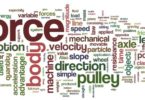
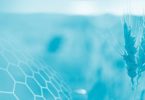
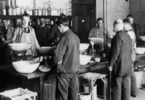
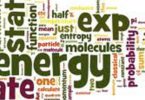
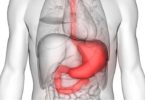
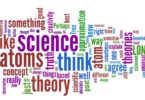
Some Questions are very easy but remaining are tough